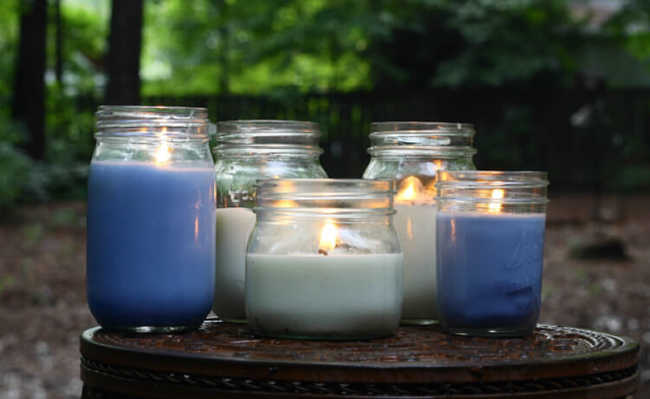How to sleep fast with 13 tips
You can sleep faster with simple tips like making a personal schedule or using a thinner blanket

How to sleep fast is a frequent search for those who suffer at bedtime, as is the case for those who have insomnia, a very problematic condition.
- Insomnia: what is it, teas, remedies, causes and how to end it
- 10 Home-Style Sleep Remedy Tips
- Sleeping positions: pros and cons of the most common
Inadequate sleep can have significant adverse health effects, including increased risk of developing obesity, diabetes, learning difficulties, difficulty with memory retention, bad mood, and others. To learn more about this topic, check out the article: "What can sleep deprivation cause?". But this problem can often be resolved with easy-to-adhere habits. Check out 13 tips on how to sleep fast and catch up on your sleep:
1. Lower the ambient temperature
Body temperature changes when we start to sleep. The core temperature decreases, while the temperature of the hands and feet increases (see studies on this here: 1, 2).
If the room is too hot, it may be difficult to sleep. For quicker sleep, you can change the blanket for a thinner one or avoid very hot baths before bed.
Individual preferences vary, so find the temperature that helps you sleep faster.
2. Use the breathing method "4-7-8"
The “4-7-8” method is a simple yet powerful breathing method that promotes tranquility and relaxation, so it can be used to sleep faster. But it can be practiced whenever the person feels anxious or stressed.
Here are the steps:
- First, place the tip of your tongue behind your front teeth;
- Exhale completely through your mouth and make a sound of whoosh;
- Close your mouth and inhale through your nose while mentally counting to four;
- Hold your breath and mentally count to seven;
- Open your mouth and exhale completely, making a sound like whoosh and mentally counting to eight;
- Repeat this cycle at least three more times.
This technique can bring relaxation and help you sleep faster.
- Pranayama Breathing: Yoga Technique Can Be Very Beneficial
3. Make a schedule
Setting a bedtime helps you fall asleep more easily. This is because the body has its own regulatory system called the circadian rhythm. This biological cycle keeps the body alert during the day and sleepy at night. Understand this theme better in the article: "What is circadian rhythm?".
Waking up and going to bed at the same time each day can help the biological clock keep to a regular schedule. Since the body tends to adjust to this schedule, it will be easier to sleep and wake up at the same time each day.
It's also important to sleep for seven to nine hours a night. One study has shown that this is the ideal sleep duration for adults. For faster sleep, take 30 minutes to an hour to relax at night before going to bed. This allows the body and mind to relax and prepare for sleep, according to the study.
4. Expose yourself to light during the day and avoid it at dusk and dark
Light influences the body's circadian rhythm, which regulates sleep and wakefulness. Exposure to irregular light can lead to dysregulation of the circadian rhythm, making sleep and wakefulness difficult.
During the day, exposing your body to light, it is in a state of alert (check studies about it here: 3, 4). At night, darkness prepares the body for sleep. In fact, research shows that darkness increases the production of melatonin, a hormone essential for sleep (see studies on this here: 5, 6).
Get out and expose yourself to sunlight or artificial light during the day. But, at dusk, avoid it, especially blue light (wavelength of light found in smartphones, televisions, computers, white LED lamps, among others). To learn more about this topic, read the article: "Blue light: what it is, benefits, damages and how to deal with it".
5. Practice yoga, meditation and mindfulness
Stress makes it difficult to sleep. Yoga, meditation and practice of mindfulness (mindfulness), on the other hand, help to calm the mind and relax the body. In addition, studies show that these practices help you sleep faster (see studies about it here: 5, 6, 7).
- Children's Meditation: Five Techniques for Children
- 12 Amazing Benefits of Meditation
- Yoga: Ancient Technique Has Proven Benefits
The practice of yoga encourages breathing patterns and body movements that ease the accumulated stress and tension in the body, according to a study.
Meditation can increase melatonin levels and help the brain reach a state that helps you sleep faster.
Mindfulness, in turn, helps to stay focused on the present and reduces worry before bed, according to a study.
Practicing one or all of these techniques can help you sleep faster and wake up with more energy.
6. Don't look at the clock

Edited and resized image of Cris Saur is available on Unsplash
It's normal to wake up in the middle of the night. However, the inability to go back to sleep can ruin a good night's sleep.
People who wake up in the middle of the night tend to watch the clock and become obsessed with the fact that they can't get back to sleep quickly.
This behavior can cause anxiety and lead to insomnia.
To make matters worse, waking up regularly without going back to sleep can cause your body to develop a wrong routine. As a result, you can wake up in the middle of the night every night.
If possible, it is best to remove the clock from your room.
- 12 tips to wake up well and have a good day
- How to get up early with 25 tips
7. Avoid daytime naps
Due to the poor quality of sleep at night, people with insomnia tend to sleep during the day. This usually leads to daytime naps.
While short naps have been associated with improvements in alertness and well-being, there are conflicting opinions about the effects of napping on nighttime sleep.
Some studies have shown that regular, long (two hours or more) and late naps can lead to poor quality of nighttime sleep and even sleep deprivation (see the studies about it here: 8, 9).
One study showed that among 440 college students who reported having three or more naps a week, who slept more than two hours, and who took an early night nap (between 6 and 9 pm) had poorer nighttime sleep quality.
Another study found that older adults who napped frequently had poorer quality night sleep, more depressive symptoms, more limited physical activity, and were more likely to be overweight than those who rarely napped.
To find out if naps are affecting your sleep, try eliminating naps altogether or limiting yourself to a short nap (30 minutes or less) earlier in the day.
8. Pay attention to your plate
Research has shown that high-carb meals can be detrimental to a good night's rest.
A review of studies concluded that while a high-carbohydrate diet may get you to sleep faster, it won't be peaceful sleep. Instead, high-fat meals can promote deeper, more restful sleep (see studies on this here: 10, 11).
In fact, several studies agree that a high-carbohydrate, low-fat diet significantly decreased sleep quality compared to a low-carbohydrate/fat diet with the same amount of calories for both diets (see here for studies about it: 12, 13).
If you still want to have a high-carb meal for dinner, you should do this at least four hours before bedtime, to allow enough time for digestion.
- Mindful Eating: Guide to Rethink Your Eating
9. Listen to relaxing music
Music can help you sleep faster. It can even be used to improve chronic sleep disorders, such as insomnia (see studies about it 13, 14).
A study of 24 young adults showed that relaxing music promotes deeper sleep.
Buddhist music is a type of music created from different Buddhist chants and used for meditation. Listening to this musical style can be a great tool for better sleep, according to a study.
Another study revealed that 25 participants had a more peaceful and deeper sleep when exposed to soft music for 45 minutes at bedtime, compared to those who didn't listen to music.
If you can't listen to relaxing music, try blocking out all the noise to sleep faster and to promote uninterrupted sleep, it also works (see studies on this 15, 16 here).
10. Exercise during the day
Physical activity is often considered beneficial for healthy sleep. Exercise can increase the duration and quality of sleep by increasing the production of serotonin in the brain and lowering levels of the stress hormone cortisol, according to the study.
However, it is important to maintain a moderate intensity exercise routine and not overdo it. Overtraining has been associated with poorer sleep quality.
The time of day you exercise also matters. To sleep faster and have a better quality sleep, training early in the morning seems to be better than training at the end of the day (see studies about it here: 17, 18).
Therefore, moderate exercise in the morning can significantly improve quality and get you to sleep fast.
- Twenty exercises to do at home or alone
11. Get comfortable
A comfortable mattress and bedding have a noticeable effect on sleep depth and quality.
A medium-sized, firm mattress has been shown to positively affect sleep quality and prevent sleep disturbances and muscle discomfort (see studies on this: 19, 20).
The quality of your pillow is also crucial. It can affect your neck curve, temperature and comfort. One study has shown that orthopedic pillows can be better than foam or memory foam pillows.
12. Turn off all electronics
Using electronic devices late at night is terrible for sleep. Watching TV, playing video games, using a cell phone and social networks can significantly impair sleep (see studies about it here: 21, 22). This is mainly due to the blue light coming from these devices. Learn more about the topic in the article: "Blue light: what it is, benefits, damages and how to deal with it".
It is recommended that you turn off all electronic devices and put away computers and cell phones to ensure a quiet place, free from distractions. This will help you sleep faster.
- Electromagnetic waves from cell phones and antennas can harm your health. See tips to prevent yourself
13. Try aromatherapy
Aromatherapy involves the use of essential oils. A systematic review of 12 studies revealed that aromatherapy was effective in improving sleep quality.
In addition, it appears that lavender has positive effects and helps you sleep faster (see studies about it here: 23, 24).
An essential oil diffuser can be helpful in flavoring your bedroom with relaxing essences that encourage sleep. You can also use a thermal herbal mask to apply essential oils. Understand more about the topic in the article: "What are essential oils?".










